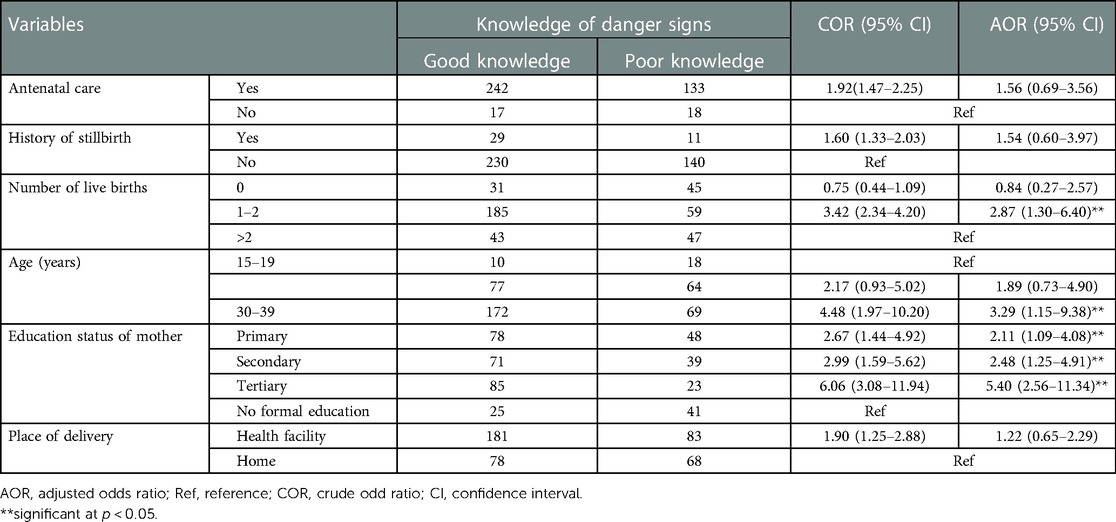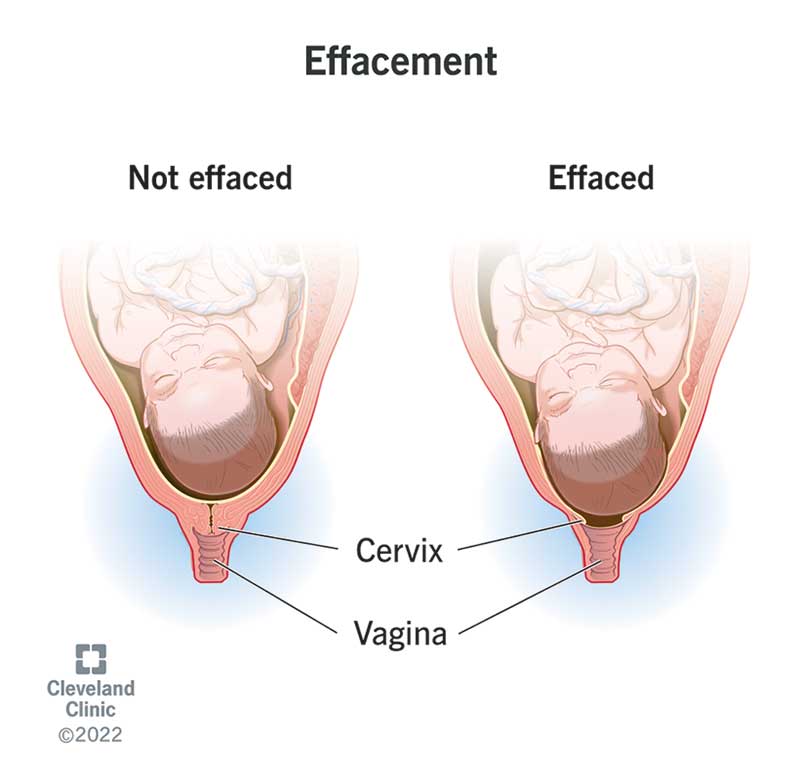Magnitude and determinants of knowledge towards pregnancy danger signs among pregnant women attending antenatal care at Chiro town health institutions, Ethiopia

The overall women’s knowledge of the danger signs of pregnancy was poor, and monthly income, distance to health facilities, and residence were determinant factors of mothers’ knowledge of pregnancy danger signs. Objectives: This study aimed to assess the magnitude and determinants of knowledge of pregnancy danger signs in Chiro town health institutions, Ethiopia. Methods: Institutional-based cross-sectional study was conducted among 395 systematically selected pregnant mothers. An interviewer-administered pretested questionnaire was used to collect data. The data were entered into EPI data version 3.1 and analyzed using SPSS version 22. Bi- and multivariate logistic regression analyses were used to identify determinant factors. Statistical significance was declared at p < 0.05. Results: Even though 58.0% of respondents recalled at least one danger sign of pregnancy, only 26.3% (95% confidence interval: 21.7–30.7) of the respondents had good knowledge of pregnancy danger signs. Residence (adjusted odds ratio = 2.43, 95% confidence interval: 1.50–4.00), distance to health facility (adjusted odds ratio = 2.11, 95% confidence interval: 1.28–3.47), and income (adjusted odds ratio = 1.99, 95% confidence interval: 1.22–3.33) were found to be significantly associated with mothers’ knowledge of pregnancy danger signs. Conclusion: The overall women’s knowledge of the danger signs of pregnancy was poor. Monthly income, distance to health facilities, and residence were determinant factors of mothers’ knowledge of pregnancy danger signs. Thus, the provision of information targeting pregnant women, their families, and the general community regarding danger signs of pregnancy is recommended to health care providers.

The Federal Democratic Republic of Ethiopia in: IMF Staff Country Reports Volume 2004 Issue 037 (2004)

PDF) The Influence of Home Delivery on Maternal Mortality in Longido District in Tanzania: A Mixed Method Study

Factors associated with the knowledge of obstetric danger signs, and perceptions of the need for obstetric care amongst married young women in northern Nigeria
Adherence to iron and folate supplementation and associated factors among women attending antenatal care in public health facilities at Covid-19 pandemic in Ethiopia

Knowledge Attitude and Practice of Pregnant Women to Ward Danger Sign of Pregnancy in Harar Towen Eastern Ethiopia

Determinants of early discontinuation of long-acting and reversible contraceptive methods among women within childbearing age attending health facilities in Ethiopia, 2019 - Dejene Edosa Dirirsa, Mukemil Awol Salo, Mogos Beya Gudeta, Merga

Perception of obstetric danger signs according to age group of women in

PDF) Magnitude and determinants of knowledge towards pregnancy danger signs among pregnant women attending antenatal care at Chiro town health institutions, Ethiopia

Frontiers Knowledge of danger signs in pregnancy and their associated factors among pregnant women in Hosanna Town, Hadiya Zone, southern Ethiopia







